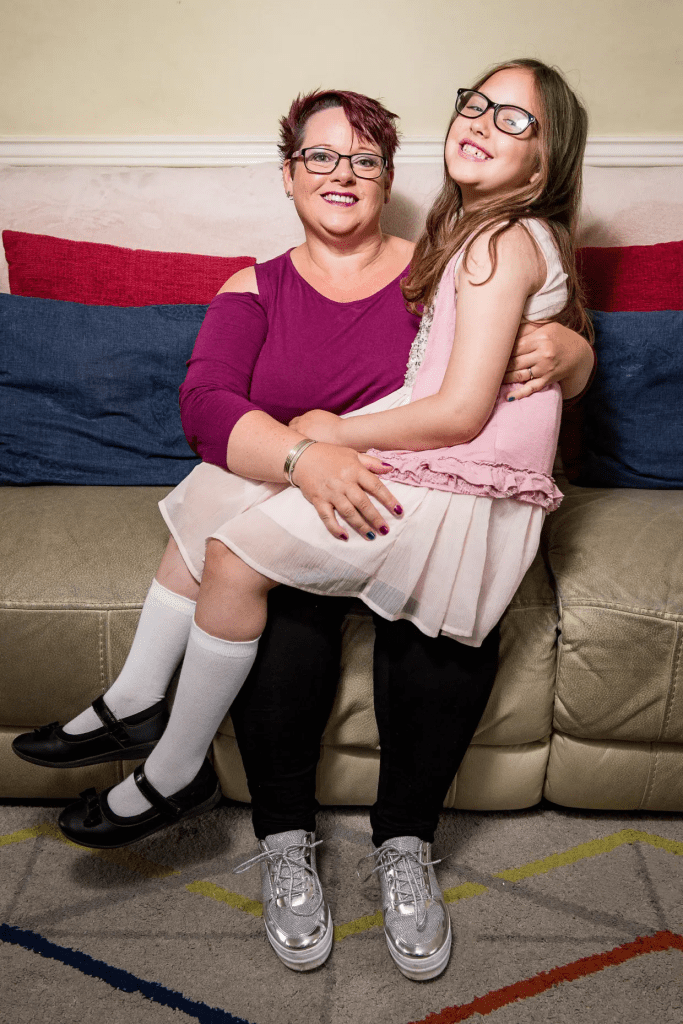Everything in life comes with both pros and cons. Breastfed babies are no different. While there aren’t exactly cons to breastfeeding a baby, for moms, there can be some downsides. Producing enough milk can be hard on the body and an emotional experience. Additionally, women wonder what is going wrong or feel inadequate if they cannot produce enough milk.

In contrast, one mom shared that she breastfed her daughter until the age of nine, sparking a lot of controversy. She explained how she believed it to be beneficial but was there a line crossed? Was there no placement of boundaries? Or is she right, did her daughter benefit immensely, or can she just do what she wants?
Sharon Explains Why She Breastfed So Long
Sharon Spink a mom of 4, shared that her 9-year-old daughter Charlotte made the decision to stop breastfeeding. Her plan was to be done by the age of 10. She said that Charlotte slowly weaned herself off of breastfeeding and had stooped prior to reaching the 10-year mark. She explained that in the months leading up to no longer being breastfed, her feedings were more spread out. Charlotte would only ask for it when she was feeling under the weather or looking for some comfort.
Sharon said she would have let Charlotte breastfeed for as long as she wanted but was glad to stop. She further stated, “As she’s been reducing anyway, I don’t feel sad about it. If she would have stopped suddenly, I think I would have missed it. But it’s just nice that it’s come to a natural end. It’s how I envisaged it would end. It was her choice and was done in a very gradual way.“
Extended Breastfed Babies
It is common for some moms to choose extended breastfeeding. Extended breastfeeding is technically anything beyond 12 months, but the timeline varies, and it is not totally uncommon for some mothers to breastfeed until the age of 2 or 3. However, not everyone follows the same path, and some moms have breastfed well into ages 4-6. Denise Sumpter, living in the UK, shared in 2014 that she was still breastfeeding her daughter Belle, aged 6 1/2.
This sparked some discussion, and professionals weighed in. A registered nurse, midwife, and lactation consultant were completely supportive. She said breastfeeding for that long would be, “benefiting emotionally and physically.” In contrast, another expert, a retired midwife and breastfeeding counselor, expressed an opposing sentiment. Further explaining, “that extended breast-feeding to age 6 in England, isn’t necessary — or normal. Because the child could be ridiculed, and because there are no longer any benefits to be had.”
An Expert’s Email Response
Former professor and University of Delaware anthropologist Katherine Dettwyler shared an email responding to Sumpter’s questions. The email reads, “My research, and research by others on non-human primates and non-primate mammals, suggests that nursing large-bodied mammalian offspring for many years, until their first permanent teeth erupt (5.5-6.0 years in humans), is “natural” for humans in the sense of being what the underlying evolutionary, biological/physiological norm is for us as a species. There is no research to suggest that normal durations of breast-feeding for humans as a species — 2.5 to 7+ years — lead to ‘harmful emotional dependency.’ There is some evidence that longer-term breast-feeding (along with co-sleeping in childhood) results in children who are more independent and score higher on measures of social competence.”
She continues, “I would say that the benefits of long-term breast-feeding — as long as both mother and child want — are enormous. Long-term breast-feeding allows for normal development of the child’s brain, facial structure, immune system, and emotional resilience to life’s slings and arrows. As far as I know, there are no ‘costs’ to the child. If the mother doesn’t want to continue breast-feeding, then of course, she shouldn’t feel obliged to — regardless of the age of the child. But people should be informed that nursing a 6-7+year-old is a perfectly normal and natural and healthy thing to be doing for the child, and that their fears of emotional harm are baseless.”